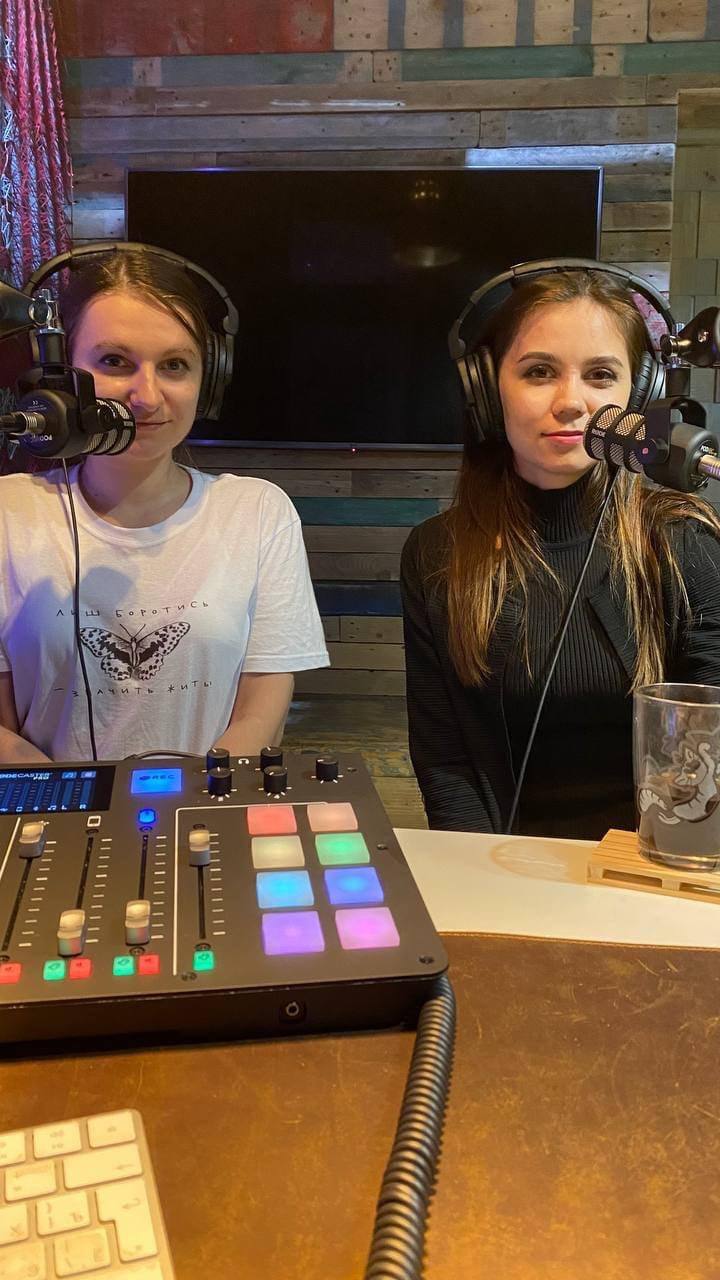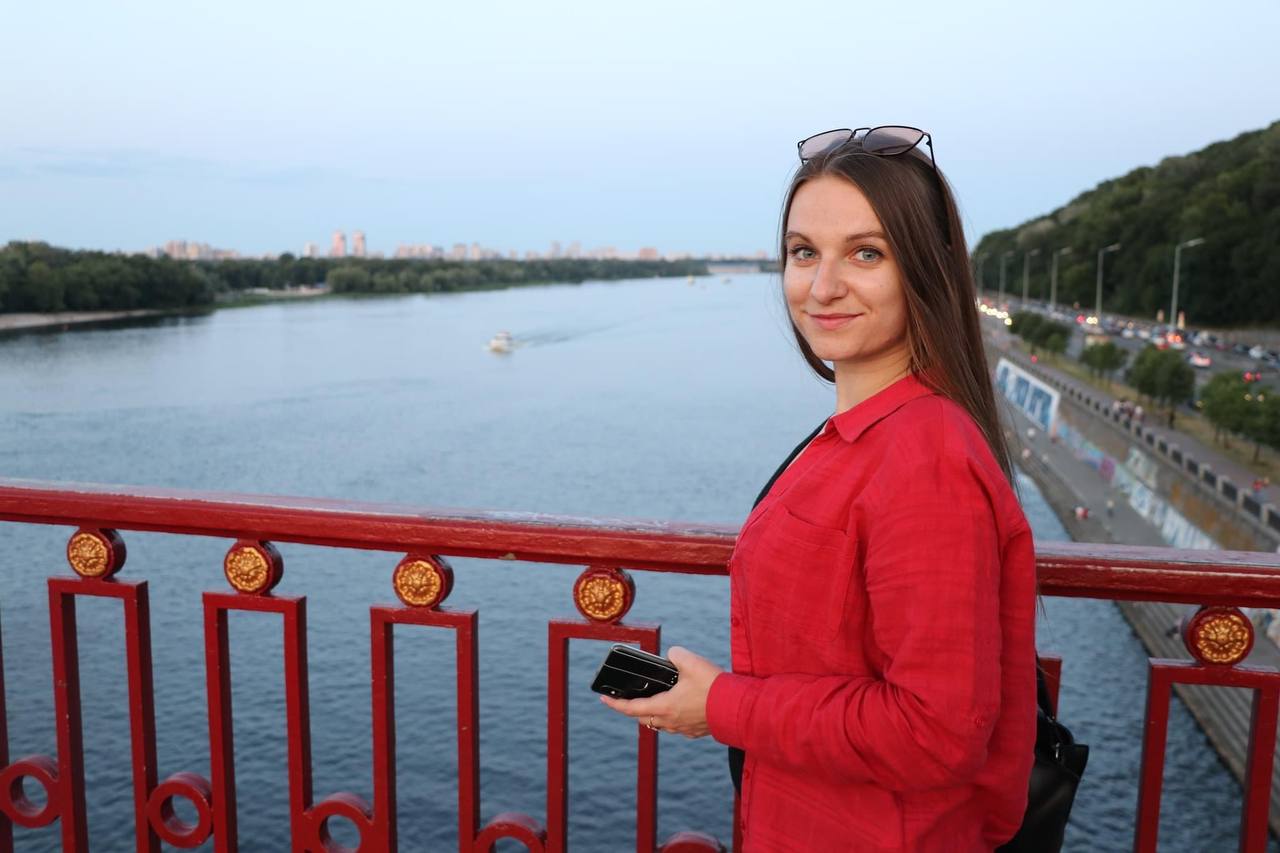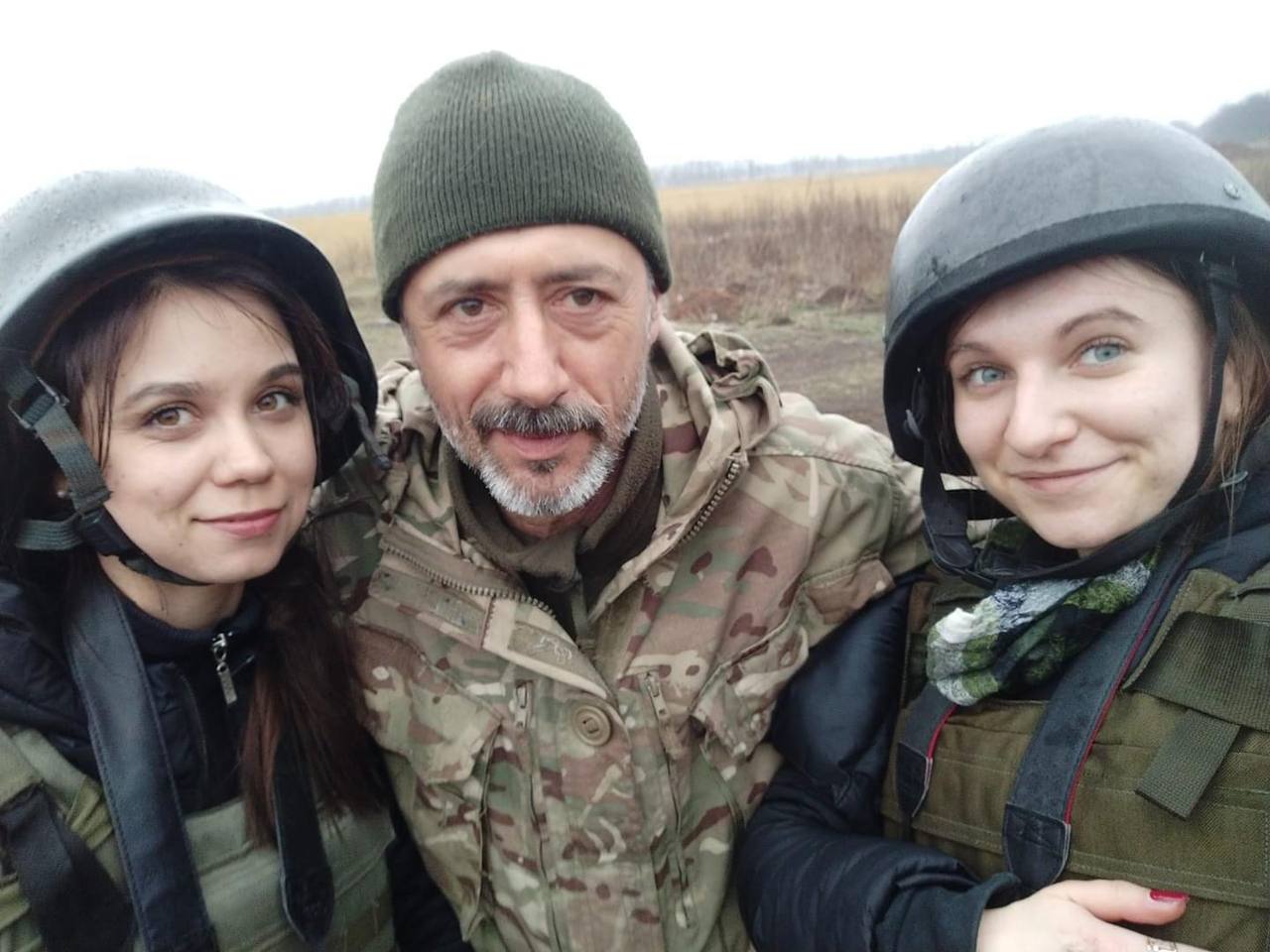The extensive war initiated by Russia against Ukraine has caused significant destruction and imposed severe challenges on countless lives. Lidiya Khaustova, editor of the local publication “6262” in Sloviansk, was compelled to leave her home due to military aggression and adapt her professional skills to cope with the new situation. In an interview with NUJU, Lidiya discussed her experiences, the circumstances of leaving Sloviansk, and the war’s influence on her work.
“When Sviatohirsk faced intense aerial bombardment, we sought refuge in shelters for nearly half a day.”
— On February 24th, we woke up to the first explosions. The first thing we did, of course, was check the news and start writing our initial reports about the full-scale invasion that began with Putin’s speech. We continued working from home and didn’t go to the office. However, I went out into the streets in the center of Sloviansk to start a live stream about the situation in the city. We wanted to do this to reassure people, to show that everything in the city was normal and calm, that the flags were in their places. At that moment, we didn’t know if it was the right thing to do. But it got a lot of views on our website at that time, — recalls Lidiya.

At the start of the full-scale war, Sloviansk wasn’t on the front lines. So, while it was possible to stay at home and work remotely, local journalists chose this path. The method of gathering information was simple: journalists would go out into the city and find out what was happening on the streets. The city council, which became the military-civil administration, held press conferences where we could obtain official information about the situation in the city and in Ukraine. But a month later, Lydiya experienced a real shock when the Russian enemy dropped the first bombs on Sviatohirsk.
— When the first explosions occurred, of course, it scared us. But we were expecting an escalation on the Donbas, anticipating an attack, and we would hear battles. The first month in Sloviansk was relatively calm – we only heard distant explosions. The first shelling that frightened us was the shelling of Sviatohirsk, which happened in early March. Russian planes started flying and dropping bombs on the Lavra. The sound of planes has been associated with something terrifying since 2014, — says Lydiya Haustova.

The “6262” website team had predetermined that they would continue working until specific locations were taken, blocking two of the three evacuation paths from the city. When the Russians captured Izyum, it raised concerns among Sloviansk’s journalists, especially due to the movement of people from Donetsk using that route.
— Our website’s leader had a prepared plan. Although we weren’t aware of it, it was fortunate he had everything arranged in advance. When Sviatohirsk faced intense aerial bombardment, we sought refuge in shelters for nearly half a day. The following day, after discussions with colleagues, we made the decision to leave. The site leader had coordinated with the Media Development Foundation, which already had a hub in Chernivtsi, and extended an invitation to us. Initially, our leader provided us with his own funds for our departure and accommodation search in Chernivtsi. Subsequently, we began seeking various grants.

Live and work in a new format.
The editorial team brought minimal equipment for remote work. However, they soon regretted leaving so early, around mid-March, as Sloviansk hadn’t faced significant shelling by the month’s end, despite the occupation of nearby Sviatohirsk and Lyman. Nevertheless, there was no reversing their decision, and their adaptation to a new location commenced.
— When we first moved, finding accommodation was very difficult, and rental prices skyrocketed beyond reach. For the first few days, we slept in a shelter in a room with 18 mattresses. It was a shocking situation for us. Later, we found apartments that we could rent, and then we started working in an office, — the journalist continues.
The main professional challenge was their shift in content focus. Previously specializing in video content, the “6262” website lost this capability upon moving to Chernivtsi, and they have struggled to fully adapt since.
— We have to collect materials with a caption stating that we took them from various sources. We tried to find Donbas migrants in Chernivtsi, but it wasn’t as easy as expected. Mostly, people from Kharkiv and Kyiv settled here. So, the editorial team of the site transformed and began to tell the stories of migrants from all over Ukraine. We had more materials, and along with them, our belief in Ukraine’s victory grew stronger.
This series, titled Executed Free Speech, is created as part of a project Drawing Ukrainian And International Audience’s Attention To Serious Violations Of Human Rights And Crimes Against Journalists And Mass Media By The Russian Federation, which is performed by the National Union of Journalists of Ukraine, with support from the Swedish non-profit organization Civil Rights Defenders.
JOURNALISTS ARE IMPORTANT. Stories of Life and Work in Conditions of War is a cycle of materials prepared by the team of the NUJU with the support of the Swedish human rights organization Civil Rights Defenders.
#CRD

 THE NATIONAL UNION OF
JOURNALISTS OF UKRAINE
THE NATIONAL UNION OF
JOURNALISTS OF UKRAINE
















Discussion about this post